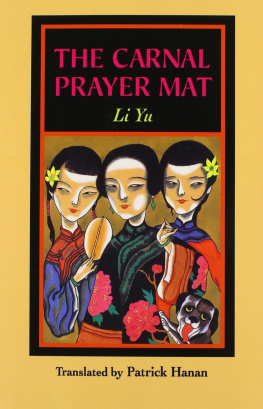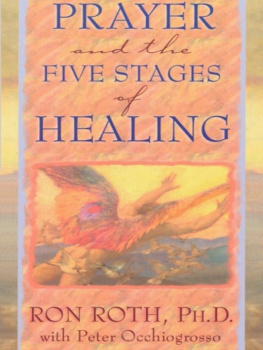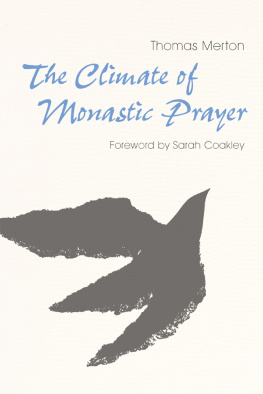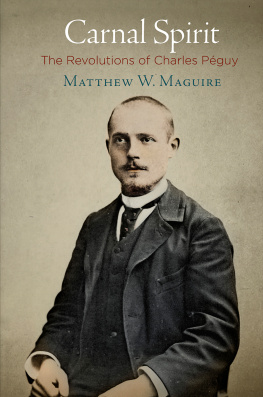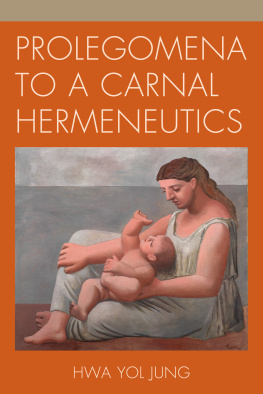THE CARNAL PRAYER MAT (ROU PUTUAN)
LI YU
TRANSLATED, WITH AN INTRODUCTION AND NOTES, BY PATRICK HANAN
An Available Press Book
Published by Ballantine Books
Translation, notes, and introduction
copyright 1990 by Patrick Hanan
All rights reserved under international and Pan-American Copyright Conventions. Published in the United States by Ballantine Books, a division of Random House, Inc., New York, and simultaneously in Canada by Random House of Canada Limited, Toronto.
Grateful acknowledgment is made to Harvard University Press for permission to reprint an excerpt from The Invention of Li Yu by Patrick Hanan. Copyright 1988 by the President and Fellows of Harvard College.
Library of Congress Catalog Card Number: 89-91506
ISBN: 0-345-36508-9
Text design by Holly Johnson
Cover design by James R. Harris
Cover illustration: Whiling Away the Summer by Yin Chi, one of twelve album leaves, 19th century.
Courtesy of Sydney L. Moss Ltd.
Manufactured in the United States of America
First Edition: August 1990
10 9 8 7 6 5 4 3 2 1
Contents
INTRODUCTION
What first attracted me to Li Yu was his love of comic invention. "Broadly speaking," he once wrote to a friend, "everything I have ever written was intended to make people laugh." He was never content, as other writers were, to make minor variations upon the standard literary themes. Instead he submitted those themes to a drastic overhaul and created a new comedy of his own, claiming all the while that his version of reality was the true one and that everybody else was deluded. He thus belongs to that rare breed of comic writerrare in any culturewho discovers or invents the terms of his own reality.
Let me give two obvious examples, both of them discoveries rather than inventions. In its most general outline a Chinese romantic comedy consisted of a handsome youth with brilliant literary gifts falling in love with a beautiful and talented girl and, after overcoming a number of vicissitudes, marrying her. By the seventeenth century countless stories and plays, some of them masterpieces, had been written to this formula. But Li Yu would have none of it. In his first play (or opera, both terms apply), Lianxiang ban , a title freely translatable as Women in Love , he adapted the formula and applied itfor the first, and perhaps only, time in the history of Chinese literatureto a love affair between two women. Eventually the lovers are united as wives to the same manthe only solution open to them. Similarly, in Li Yu's Silent Operas (Wusheng xi) collection, there is a story about a love affair between two men that derives its comic power from the way it parallels a perfect heterosexual marriage, all the way from courtship to widowhood. Examples of comic discovery and invention abound also in his novel, The Carnal Prayer Mat (Rou putuan) .
Invention and discovery, together with the implied virtue of originality, were stressed more by Li Yu than by any writer before him. "Newness is a term of approbation for everything in the world," he wrote, "but above all for literature." Copying is taboo, of course, even from the ancients, but so is echoing other writers, and not merely other writers but ourselves; we are not permitted even to echo ourselvesan impossible ideal, and one that Li Yu himself did not come close to realizing.
His passion for invention carried over from literature to life. He was a designer and practical inventor as well as a writer, and his essays ring with the (slightly self-mocking) refrain: "Is it not strange that the world had to wait for Li Yu to invent this?" A version of the refrain occurs in Chapter Ten of the novel, too, after Vesperus has shown his savoir-faire with pillows: "The general principle is known to all, but that particular formula has never been understood before." So strong was Li Yu's passion for novelty that he was also quite capable of shocking his readers for sensational effect.
A second unique quality is his voice or persona. Strictly speaking, he had not one voice but a range of them, mostly humorous, that he employed in his fiction and essays. The narrator in the traditional Chinese novel had always been a strong vocal presence anyway, in vague simulation of an oral storyteller, and Li Yu exploits that conventionopenly manipulating the narrative, commenting on the action, addressing his readers as if they were an audience, and even answering questions posed by a fictitious member of that audience. A passage in Chapter One of his novel exemplifies this last convention:
"Storyteller, since you want people to suppress their lecherous desires, why not write a tract promoting morality?"
"Gentle readers [or audience], there is something of which you are evidently unaware "
The difference is that Li Yu is substituting a voice of his own for the voice of the traditional narrator. Every Chinese novelist had to make some accommodation with the figure of the traditional narratora history of the genre could be written in terms of their accommodationsbut Li Yu's solution was the most personal, and perhaps the most satisfying. He was a noted wit and pundit in life, and I suggest that he managed to create in the voice of his fictional narrator a perfect literary correlative for his oral wit and punditry.
Few people realize that a lively tradition of erotic fiction existed in China, particularly in the sixteenth and seventeenth centuries. It was a superior tradition, in my opinion, to its somewhat later counterparts in England and France. Granted, Fanny Hill is a small miracle, but it seems a miracle precisely because it is isolated; and Sade's novels, as fiction , are second-rate at bestfull of philosophizing as well as ludicrous cruelties and blasphemies. In China, by contrast, several novels of undeniable power were written. The Jin Ping Mei (The Golden Lotus) is only a partial member of the genre, being much else besides. If there is a classic example of the Chinese erotic novel, it is surely Li Yu's Carnal Prayer Mat .
It is in the nature of erotic fiction to seek out forbidden territory to explore. In China that was likely to mean adultery, not defloration as in the corresponding European genre. (In Europe adultery was left to the bourgeois novel.) The reason is clear enough: adultery violated the husband-wife ethic, one of the key Confucian social obligations. In a family-centered morality, it was a natural choice as the crucial sin, but for precisely the same reason, it also posed an intolerable threat to society. The libertine's adulterous adventures may enthrall the reader with their glimpse of forbidden pleasure, but ultimately they must fail . Sexuality for the Chinese writer, unlike Western apostles of eroticism from Sade to Lawrence, was a drive that had to lose when it collided with social values. That is why Chinese libertines are generally the objects of satireas they certainly are in Prayer Mat . And it also explains why the Chinese novels can end only with the libertine's punishment and repentance.
But although the libertine adventure may be headed for disaster, the erotic novels obviously cannot be taken at their face value as the dire warnings they profess to be. For all its obsessiveness, the libertine adventure is presented to us with so much gusto that we are surely meant to enjoy it. I suggest that there is an inevitableand artistically quite justifiabletension in much visual and literary art on erotic subject matter. In Chinese fiction at least, the reader plays voyeur as well as judge as he watches the tale unfold, observing, with both pleasure and foreboding, its exploration of forbidden territory and its inescapable end.
The agency of punishment varies from novel to novel. A common one is retribution according to the doctrine of karmathat is to say, punishment in the next life for sins committed in this one. In Chapter Two of Prayer Mat , Li Yu takes the extraordinary step of introducing the Buddhist priest Lone Peak to explain this notion to us. The priest calls it "otherworldly" retribution and pairs it with a "thisworldly" retribution by which one's sins are repaid in this life. The second kind of retribution is an age-old, popular notion unrelated to Buddhism proper. (The novel's views are eclectic, embracing Heaven, the Principle of Heaven, the Creator, and the ancient sages, as well as Buddha.) The priest goes on to quote the adage "If I don't seduce other men's wives, my wife won't be seduced by others," and then erects it into a general principle by which an adulterer's wives and daughters are condemned to "redeem" his sins with their owna characteristic Li Yu twist to an old idea.
Next page
